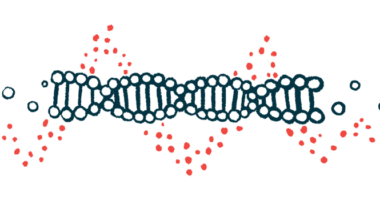FAP Patient with Rare Mutation and Advancing Nerve, Heart Damage Treated Ably with Vyndaqel, Case Study Reports

A 60-year-old man with familial amyloid polyneuropathy (FAP), and quickly progressing nerve damage and heart disease, was found to carry a rare mutation in the TTR gene, a recent case report details.
He responded well to treatment with Vyndaqel (tafamidis, by Pfizer), the medical team reported.
The study, “Late-onset and fast progressive neuropathy and cardiomyopathy in Val32Ala transthyretin gene mutation,” was published in the journal Neurological Sciences.
Over 100 mutations in TTR have been associated with FAP, a disease whose diagnosis may be challenging due to overlapping features with other forms of chronic neuropathy, or nerve damage.
The team at Fondazione IRCCS Istituto Neurologico “Carlo Besta,” in Italy, described a Caucasian patient who first experienced progressive weakness and cramps in the lower limbs about two years before he was referred to the institute. He later developed movement problems in the upper limbs.
The patient had been diagnosed with chronic inflammatory demyelinating polyneuropathy based on sensorimotor demyelinating — with loss of myelin, the protective layer of nerve fibers — neuropathy and a higher-than-normal protein level in the cerebrospinal fluid, the liquid surrounding the brain and spinal cord.
He was being treated with prednisone 50 mg daily for two months, and with an angiotensin-converting enzyme inhibitor and beta-blocker for hypertension and cardiac extrasystole, or a heartbeat outside the heart’s regular rhythm.
When he arrived at the institute, the man required a cane to walk and complained of problems with finger movements. He also reported reduced sweating, surges of arterial pressure, impotence, episodes of incontinence, and a 15 kilogram (about 33 pounds) weight loss over six months.
A neurological evaluation found diffuse muscle wasting, weakness of upper limb and lower limb muscles, loss of deep tendon reflexes — nerve reflexes that determine muscle contraction upon tapping — decreased light touch and pinprick sensation (a type of sensory exam) with a “stocking-glove” distribution, and a vibratory sensation in the lower limbs.
The patient had a normal body mass index (BMI) value (21.2), did not report pain — common to people with FAP — or symptoms of cardiac failure, and had no dyspnea (shortness of breath) on daily physical activity.
A nerve conduction analysis revealed that the tibial, peroneal and sural nerves of the leg, the radial nerve in the upper limb, and the median nerve that extends from the forearm to the hand were all not excitable, meaning no activation. A subsequent examination found active denervation, or loss of nerve supply, of distal limb muscles and chronic muscular abnormalities arising from the nervous system (neurogenic).
An echocardiogram demonstrated hypertrophic cardiomyopathy, which refers to thickening in the heart muscle, further heart valve thickening with mild mitral insufficiency — a disorder in which the mitral valve of the heart, which separates the left atrium from the left ventricle, does not close properly after blood is pumped out — atrial enlargement, and mild pericardial effusion, which is an abnormal accumulation of fluid in the pericardial cavity ( contains the heart).
The findings also suggested deposits of the protein amyloid in the patient’s myocardium, the heart muscle. Similar amyloid deposition was found upon a sural nerve biopsy.
Genetic testing then revealed a heterozygous mutation (in one gene copy) known as p.V32A (c.155T>C), a rare mutation only previously reported in two patients. It and is located in a function domain of the transthyretin protein. The patient’s sister and sons, all asymptomatic, did not carry this mutation.
The man started daily treatment with Vyndaqel at 20 mg, which led to functional recovery at eight months, with improved muscle strength, balance, and trunk control. He was able to go back to work, although still walking with an aid. His neurologic Impairment Score in the Lower Limbs — an assessment of neuropathy severity — reduced (improved) from 69.5 to 54.5, and his BMI increased to 22.8.
Vyndaqel is approved in the Europe to treat transthyretin familial amyloid polyneuropathy (TTR-FAP), but not in the United States.
Overall, the findings establish the p.V32A mutation “as a rare cause of [FAP] with possible late-onset and fast progressive course,” the scientists wrote.






